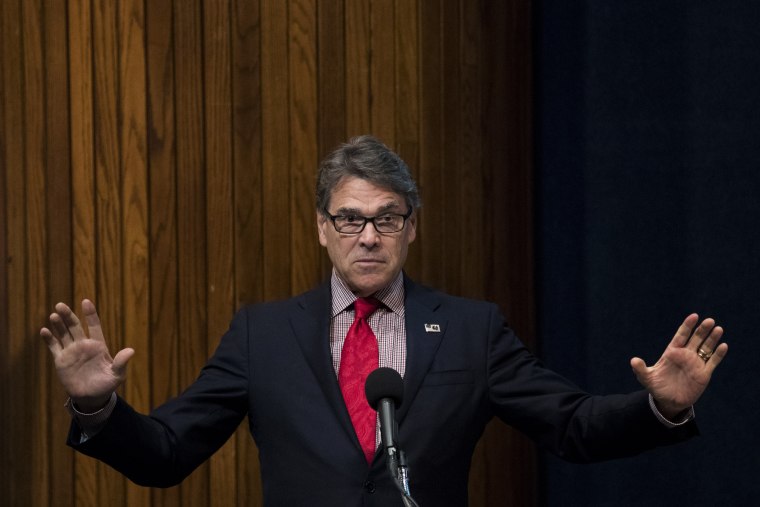It didn't get a lot of attention last year, but the Trump administration came up with an outlandish energy plan to help the coal industry. It was shot down, though it's apparently making something of a comeback.
It's no secret that the coal and nuclear industries are facing some serious challenges, including having more than a few old power plants, which are widely seen as obsolete. Making matters worse, they're facing tough competition from natural gas and renewable power. As a Vox piece explained in October, Energy Secretary Rick Perry came up with a plan that would have effectively bailed out the industries by requiring utility companies to pay coal and nuclear power plants "for all their costs and all the power they produce, whether those plants are needed or not."
Or put another way, the public would create unnatural profits for the coal and nuclear plant owners, even if utility companies had more affordable alternatives, and even if the plants themselves were not economically viable, because the Trump administration would mandate it.
The Republican-led Federal Energy Regulatory Commission rejected that plan in January. Bloomberg News reports today on the Trump administration's apparent Plan B.
Trump administration officials are making plans to order grid operators to buy electricity from struggling coal and nuclear plants in an effort to extend their life, a move that could represent an unprecedented intervention into U.S. energy markets.The Energy Department would exercise emergency authority under a pair of federal laws to direct the operators to purchase electricity or electric generation capacity from at-risk facilities, according to a memo obtained by Bloomberg News. The agency also is making plans to establish a "Strategic Electric Generation Reserve" with the aim of promoting the national defense and maximizing domestic energy supplies.
The Bloomberg report emphasized that the plan, which is dated this week and was distributed to officials yesterday, is marked as a "draft," and we don't yet know if Trump has (or will) sign off on the idea.
But it's not too soon to say that this plan is awfully tough to defend.
Indeed, we're right back to where we were last fall, when many observers marveled at the audacity of Rick Perry's gambit: the administration, having been turned down by the Federal Energy Regulatory Commission, is still moving forward with a plan to require energy grid operators to buy power from obsolete plants -- even if they don't want to, and even if it costs more.
This is supposed to be legal, apparently, based on Team Trump's interpretation of "the 68-year-old Defense Production Act, a Cold War-era statute once invoked by President Harry Truman to help the steel industry."
In other words, like the White House's new tariffs, administration officials are pushing the envelope of what constitutes a "national security emergency."
If implemented, this plan would not only increase costs and almost certainly increase pollution, it would also reject anything resembling conservative principles: we're talking about dramatic federal intervention in a private marketplace, picking winners and losers in ways Republicans are supposed to hate.
That said, Trump has received a lot of support from West Virginia and coal-industry donors, so it may yet happen anyway.
